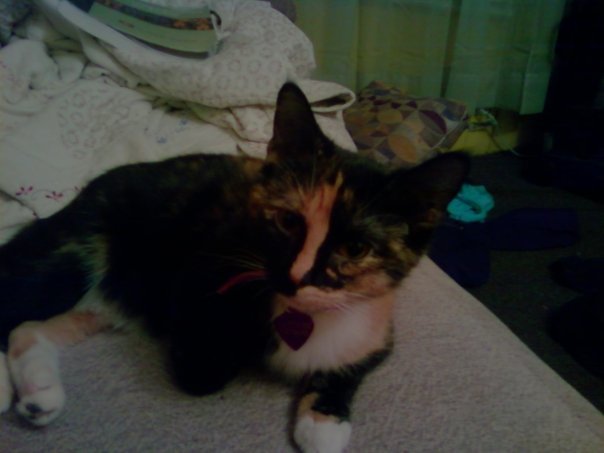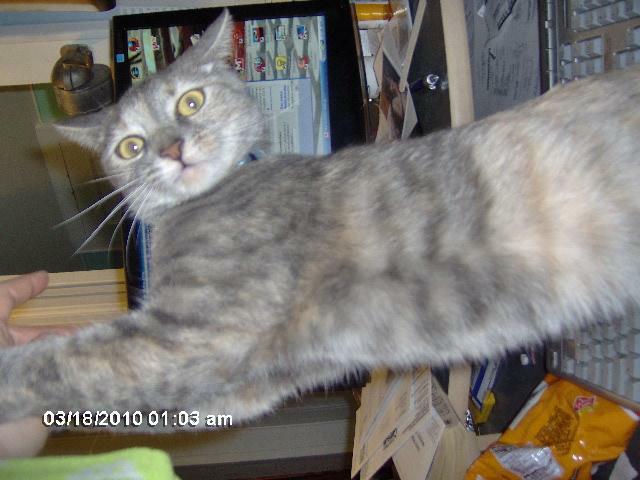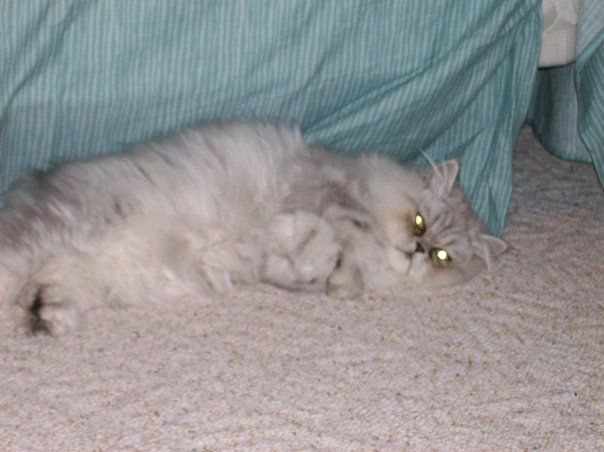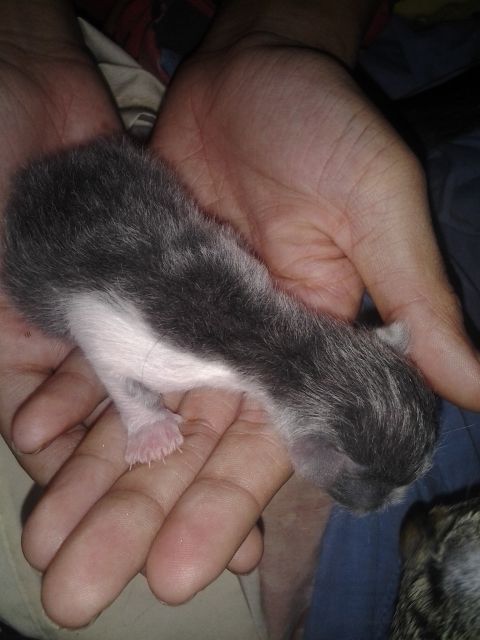QuestionDoes a cat depend on its sense of smell their whole life?
Is a cat's sense of taste based on its sense of smell?
Are there certain types of foods we cannot give our cats?
What does a cat use whiskers for?
Do you think age affects a cat's senses?
AnswerSabirna,
I'm happy to be able to help you with your science project, here are the answers to the questions that you've asked:
1) Does a cat depend on its sense of smell their whole life?
Kittens are born blind, deaf and helpless. They depend on their sense of smell to find their way to their mom's teats so that they can eat so their dependance on their sense of smell begins at the moment they take their first breath. An interesting fact about newborn kittens is that they will often choose a preferred teat when they're born, mark it with their own unique scent and they will push their littermates away from their preferred teat. A kitten's attachment to their preferred teat will usually continue until they're weaned.
If an older cat gets an upper respiratory infection (similar to a cold in people) and they can't smell their food they will often stop eating. In senior cats it's often a good idea to warm their food up slightly so that it has a stronger smell to encourage them to eat what they need to in order to stay healthy.
In short yes, a cat depends on its sense of smell from the moment s/he draws his/her first breath until the end of their lives.
2) Is a cat's sense of taste based on its sense of smell?
As far as I know this is true of all mammals, cats included.
3) Are there certain types of foods we cannot give our cats?
Absolutely. It's not safe for cats to eat any kind of chocolate - the general rule of thumb is that the darker the chocolate the more toxic it will be to a cat or dog. Cats also can't eat onions, garlic or foods that contain them. It's a really bad idea to give a cat raw pork due to the possibility that they can become infected with a parasite called toxoplasmosis which can be passed on to people which is why it's so important to be sure that we thoroughly cook meat and wash our hands thoroughly after cleaning up cat feces.
4) What does a cat use whiskers for?
Contrary to popular belief cats do not use their whiskers for balance. If you look closely at a cat that's within the range of normal, healthy body weight the width of their whiskers is fairly close to the width of their body meaning that if a cat is trying to get into a tight space and their whiskers don't fit they will usually realize that the rest of their body won't fit into that space either.
5) Do you think age affects a cat's senses?
Absolutely, as cats age their senses become less sharp just as a person's senses become less sharp as they age. It's not uncommon for elderly cats to lose hearing, vision and even to have their sense of smell diminsh as they age which is why it's important to be conscious of the little things that can affect an elderly cat's perceptions of the world around them. Suddenly waking up a cat that's losing their hearing could result in the cat being startled and possibly even lashing out by scratching and/or biting just because they've been frightened. Elderly cats need special care sometimes if their appetite diminishes as they age without a medical reason because as I mentioned earlier in this answer when cats can't smell their food they very often won't eat it so heating the food slightly in the microwave will often help a cat who isn't smelling their food very well to take in the nutrition that they need in order to stay healthy. Older cats may begin bumping into things like furniture or walls as they age because changes in their eyesight happen over time just as they do in people as we age.
If you have any further cat related questions or concerns, please don't hesitate to contact me again at any time. I'll be more than happy to help you in any way that I can. Good luck with your science project.
Regards,
Ali

 Female Cat changes behavior
Question
Patches
I have four older cats, a dog and now
Female Cat changes behavior
Question
Patches
I have four older cats, a dog and now
 my cat is REALLY long, like a weasel!
QuestionQUESTION: Im hoping you can help me identify my
my cat is REALLY long, like a weasel!
QuestionQUESTION: Im hoping you can help me identify my
 Persian Male peeing outside of litter box
Question
Bambam
I have a 2 year old Male persian who ur
Persian Male peeing outside of litter box
Question
Bambam
I have a 2 year old Male persian who ur
 Kitty Peeing
Question
Howie
Our kitten is about 8 months old
Kitty Peeing
Question
Howie
Our kitten is about 8 months old
 Trouble with my Two female cats.
Question
The kitten Two Cats
Hello, I have
Trouble with my Two female cats.
Question
The kitten Two Cats
Hello, I have